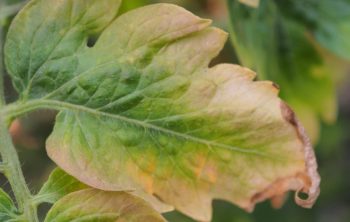One question people want to know is how long does blood meal last in
It’s one thing to have the nutrients available in the
What is Blood Meal for Plants?
Blood meal is an organic fertilizer that’s made out of dried animal blood coming from slaughterhouses. It has an NPK ratio of 12.5-1.5-0.6. It’s all-natural, a safe choice for sustainable gardeners.

How Long Does Blood Meal Last In Soil ?- Factors to Consider
Blood Meal is a slow-release fertilizer that can last around 2 to 6 weeks in
Decomposition Process
- Type of Organic Material
Depending on the materials used, natural fertilizers take time to decompose. Blood meal has a different decomposition length compared to compost, manure, bone meal, or vegetable scraps. They vary in their composition and complexities.
- Type of Microbes
Once applied to the
The release of nutrients is dependent on the efficiency of the decomposers. The amount and nature of microbes present is a factor. Fungi, bacteria, earthworms, and other feeding organisms work together to make this happen.

- Type of Environment
The efficacy of decomposers is also affected by its environment including temperature, moisture level,
Application Process
- Timing
Apply blood meal 2 weeks before planting. This technique gives enough time for the microbes to make nutrients available in time for planting. Also, blood meal has a very high nitrogen content that it can burn the plants when mismanaged. The advanced application makes the concentration tolerable.
Reapply every 2 months to ensure a continuous supply of nutrients especially on the vegetative stage of plants.
-
Blood Meal Application Rate
Apply 1 cup per 20 square feet of
Final Words
As a slow-release organic fertilizer, blood meal lasts in the
FAQ
What Plants Benefit From Blood Meal?
The plants that benefit from blood meal are plants that are heavy nitrogen feeders. They include cucumbers, tomatoes, peppers, radishes, lettuce, corn, and squash. Cruciferous vegetables such as kale, broccoli, spinach, cauliflower, cabbage, and Brussels sprouts are also included.
Basically, nitrogen is one of the most unstable nutrients in the
However, some plants should avoid blood meal application. Plants such as legumes already have roots nodules with bacteria that can fix nitrogen from the atmosphere.
How Long Does It Take For Blood Meal To Work?
Blood meal is a quick organic remedy to nitrogen deficiencies in plants. It is always readily available to plants and highly soluble. However, if used inappropriately, especially to young plants, it can burn and injure your plant roots and plant tissues. This is because of the decomposition that takes place in the
Decomposition will determine how fast blood meal works. The
Also, doing a
Therefore, ensure you follow instructions and do not exceed the recommended quantity given on blood meal labels.
Can I Mix Blood Meal With Water?
If you are wondering if you can mix blood meal with water, then you should know that most blood meals are highly soluble. Therefore you can mix blood meal with water. However, read the instructions on the label to know if should mix blood meal with water.
Can You Sprinkle Bone Meal On Top Of Soil ?
You can sprinkle bone meal evenly on top of the
Again, if you wish to apply bone meal fertilizer all through its growing season, make sure you sprinkle uniformly on top of the established areas of the
For applying bone meals on top of established plant soils with containers, sprinkle some bone meal at the beginning of the season. You can then sprinkle again once or twice all through the growing season. This will enhance flowering or encourage fruit ripening as your plants develop.
Slow release or fast release of blood meal fertilizer actually depends on
Always have in mind that fast action of blood meal which results in the release of more nitrogen can be harmful to your plants.

Brian is an avid gardener who loves spending time outdoors. He is passionate about using his green thumb to create beautiful, lush gardens for her friends and family. He finds joy in tending to her garden, trimming plants, and cultivating new species. He enjoys to share his knowledge and experience with others with a similar gardening enthusiasm. Brian is a true nature enthusiast and a has true passion for the outdoors.




